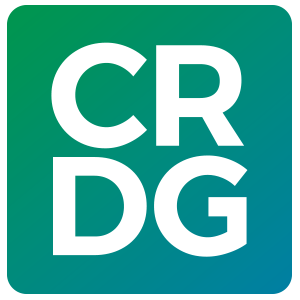We have traditionally underestimated the capabilities and capacities of young children. They are born investigators, and as we are beginning to understand, have sophisticated ways of thinking about the world. We know from our own work at CRDG in researching and developing both science and mathematics programs that K–2 learners are capable of much more than we have assumed in the past. The key is basing inquiry/problem-solving instruction on direct experiences with the immediately available environment. We know that students’ direct experiences are not limited to school. K–2 students learn from everyday activities, watching television, play, family excursions, museums, and an array of informal learning opportunities (NRC, 2009).
Children try to understand, make sense of, and influence the world around them. As they do so they develop explanations of how the world works—explanations that may be sophisticated, but do not align well with those accepted by science (Inagaki, K. & Hatano, 2002; 2006). Young children regularly engage in complex reasoning even before they enter school, developing their own ideas about how things work (Metz, 1995; Carey, 1985; Gelman & Kalish, 2005). Skilled teachers listen to what students say and observe what they do and then incorporate students’ ideas into their instruction, enabling students to construct their knowledge based on direct past experiences. By scaffolding and creating learning progressions, teachers enable students to create ever more sophisticated explanations of their world (NRC, 1999).
In creating DASH, Pottenger, et al., (2000a, 2000b, 2000c) developed learning sequences beginning in Kindergarten in a comprehensive program aligned with the National Science Education Standards (NRC, 1996). They were able to demonstrate that K–2 students can successfully engage in science and engineering practices as defined in the new science framework (NRC, 2011) and that teachers supported with professional development and developmentally appropriate instructional materials can teach the crosscutting concepts and core ideas called for by the NRC framework. Equally important, CRDG has based its instructional programs on inquiry, providing students progressively more sophisticated experiences with the eight practices of science identified in the framework (NRC, 2011). We have demonstrated that all eight science practices can be effectively introduced at a developmentally appropriate level in grades K–2 by providing PD and supportive instructional materials.
Learning progressions have received increasing attention for their potential in supporting student construction of knowledge and development of skills. Developing a thorough understanding of scientific explanations of the world, students need sustained opportunities to work with and develop depth of understanding and connections over long periods of time (NRC, 2007). The NRC science framework embraces this conceptualization of learning progressions, as do we, in proposing the SEE project (NRC, 2011; Corcoran, et al., 2009).
Learning progressions have been defined as sequences of successively more complex ways of reasoning about a set of ideas (National Assessment Governing Board, 2008), in which learners move from novice to expert after extensive experience and practice, building on prior knowledge and developing increasingly more sophisticated explanations (Shavelson & Kurplus, 2011). Corcoran et al. (2009) define learning progressions as “empirically grounded and testable hypotheses about how students’ understanding of, and ability to use, core scientific concepts and explanations and related scientific practices grow and become more sophisticated over time, with appropriate instruction” (p. 8). The hypotheses are then tested empirically to assess how valid they are.
References
Carey, S. (1985). Conceptual Change in Childhood. Cambridge, MA: MIT Press.
Corcoran, T., Mosher, F.A., & Rogat, A. (2009). Learning Progressions in Science: An Evidence-based Approach to Reform. New York, NY: Consortium for Policy Research in Education.
Gelman, S., and Kalish, C. (2005). Conceptual development. In R.S. Siegler and D. Kuhn (Eds.) Handbook of Child Psychology, Set, 6th Edition (vol. 2, pp. 687-733). Hoboken, NJ: Wiley.
Inagaki, K., and Hatano, G. (2002). Young Children’s Naïve Thinking About the Biological World. New York: Psychology Press.
Inagaki, K., and Hatano, G. (2006). Young children’s conception of the biological world. Current Directions in Psychological Science, 15(4), 177.
Metz, K. (1995). Reassessment of developmental constraints on children’s science instruction. Review of Educational Research, 65, 93–127.
National Research Council. (1996). Standards for Professional Development for Teachers of Science, National Science Education Standards. Washington, DC: National Academy Press.
National Research Council. (2007). Taking Science to School: Learning and Teaching Science in Grades K-8. Committee on Science Learning, Kindergarten Through Eighth Grade. R.A. Duschl, H.A. Schweingruber, and A.W. Shouse, Eds. Board on Science Education, Center for Education. Division of Behavioral and Social Sciences and Education. Washington, DC: The National Academies Press.
National Research Council. (2009). Learning Science in Informal Environments: People, Places, and Pursuits. Committee on Learning Science in Informal Environments. P. Bell, B. Lewenstein, A.W. Shouse, and M.A. Feder, Eds. Board on Science Education, Center for Education. Division of Behavioral and Social Sciences and Education. Washington, DC: The National Academies Press.
National Research Council. (2011). A Framework for K–12 Science Education: Practices, Crosscutting Concepts, and Core Ideas. Washington, DC: National Academy Press.
Pottenger, F. M., Brennan, C. A., Pottenger, L., Buchholz, D. L., Shimabukuro, S. K., Yamamoto, K., & Young, D. B. (2000a). Developmental Approaches in Science, Health and Technology (DASH) Program Grade K Teacher Guide. Honolulu, HI: Curriculum Research & Development Group.
Pottenger, F.M., Brennan, C.A., Buchholz, D.L., Pottenger, L., Shimabukuro, S.K., Yamamoto, K., & Young, D.B. (2000b). Developmental Approaches in Science, Health and Technology (DASH) Program Grade 1 Teacher Guide. Honolulu, HI: Curriculum Research & Development Group.
Pottenger, F.M., Brennan, C.A., Buchholz, D.L., Pottenger, L., Shimabukuro, S.K., Yamamoto, K., & Young, D.B. (2000c). Developmental Approaches in Science, Health and Technology (DASH) Program Grade 2 Teacher Guide. Honolulu, HI: Curriculum Research & Development Group.
Shavelson, R. J. & Kurplus, A. (2011). Reflections on learning progressions. In Alonzo, A. C. & Gotwals, A. W. (Eds.) Learning Progressions in Science. Rotterdam, the Netherlands: Sense.




